For most of us, our home is one of our most valuable assets. It truly is our “castle”, but it can also be one of our most vulnerable assets. I will break down a few powerful strategies to help you protect your residence from a lawsuit.
Many of my older clients grew up being told to “always pay off your home first…before anything else”. Now, we have Dave Ramsey teaching millions of Americans the evils of debt and to pay off your home as quickly as possible. That’s all well in good. It feels safe to own your home free and clear…but is it?
The truth is, when you have hundreds of thousands of dollars in equity sitting in your personal residence we have two MAJOR problems:
- Are you putting that equity to work and earning any sort of rate of return on all of that wealth (The answer is big fat No- but that’s a topic for another day/article).
- The equity in your home is the #1 target of an attorney in any sort of lawsuit.
So you think…”Well, I have auto insurance, home owners insurance, and that amazing umbrella insurance policy- surely no one could ever touch the equity in my home”… Wrong.
Examples of Lawsuits Where Insurance Won’t Help You
Many times, the lawsuit and possible judgment threatening the equity in your home isn’t even a liability created on or in the home. (i.e. a slip and fall of a guest at your home). It’s a liability that ‘blind sides’ us and we may completely unexpect it. Here are just a few examples of lawsuits that no type of insurance is going to rescue you from:
- Partnership dispute and accused of wrongdoing and breach of fiduciary duties
- Raising money for a project that goes bad and ‘investors’ (those silent partners) blow the whistle with the SEC
- An employee makes a claim for sexual harassment and with the overtone of the ‘Me Too Movement’ a settlement is a must
- A rental property tenant gets significantly injured and your one-page LLC does exactly what it’s going to do (nothing because you didn’t set-up or maintain the LLC properly)
- Your teenage driver gets into a major accident and your insurance policy chooses to not cover the entire claim because there was alcohol and drugs involved (a situation where your Umbrella Insurance will do nothing as well)
- Texting and driving is now criminal…oh…but my insurance will still cover me…yeah, you hope
- etc..etc…etc…
In all of these instances above, your home owners insurance has nothing to do with the claim and more than likely your Umbrella will do nothing to save you as well (more on that below). I’m frustrated too. Seriously. I also want to pay off my home. It scare me to death that I could lose it in a lawsuit faster than you can spell John Grisham.
Regrettably, a creditor or plaintiff will view this nest egg as the “golden egg” in his or her efforts to collect a payment from you. Please be open to protecting your equity in creative ways. I’m not saying its bad to pay off your mortgage and own it free and clear, however, it is just plain naive to pay off your home and not realize you are seriously exposing yourself to a loss.
8 Ways to Protect Your Personal Residence
Before setting forth this list in a brief manner, please know I give this topic an entire chapter in my latest book: “The Tax & Legal Playbook- Game-Changing Solutions For Your Small Business Questions, 2nd Edition”. See Chapter 19: Protecting Your Home From a Lawsuit.
Moreover, keep in mind that not only is every individual in a different situation with their assets, family, and types of risks they’re facing, but EVERY STATE is just a little different in the way asset protection applies to a personal residence. Hence, with every strategy I list below, it’s absolutely critical to make sure you have an ‘‘Asset Protection Plan’ specifically designed and applied to your situation in the State in which you reside. Here are 8 possible strategies that could work for you in trying to protect the equity in your home.
- Maintain Your Business Entities. Our first line of defense should be stopping the risk, not putting up the wall. For example, if you’re concerned about losing your home in a lawsuit because you are texting and driving, don’t start by setting up an elaborate trust to own your home…simply stop texting and driving! This is the same thing when it comes to our businesses or rental properties. If you have worries that a customer, employee, or tenant may sue you, let’s limit the risk FIRST before stressing about the structure to hold our home. This involves simple company maintenance procedures. These are affordable steps and annual action items that really do equate to an ‘ounce of protection’ and provide a ‘pound of cure’. See my other article on this subject “LLCs Must do Company Maintenance just like Corporations.”
- Umbrella Insurance. Next, I want to make sure I have all of the proper insurance policies in my life, including an Umbrella Policy. I’m still a huge fan of making sure you have proper insurance coverage. Any attorney that recommends you simply rely on legal structures and not buy insurance is taking a serious risk on your behalf. Vise-versa, thinking you can buy Umbrella Insurance and ignore other options, is fooling themselves. Umbrella insurance is cheap because it rarely pays out (research shows less than a tenth of one percent). The reason why it rarely pays out, is because it really is ‘excess’ insurance, not an ‘umbrella’ that covers a variety of situations. Now, do I personally still buy and own an umbrella insurance policy…yes, of course I do. It’s cheap AND part of an overall, well designed plan. Just know what it really is and don’t get stars in your eyes when you see how affordable it is.
- Homestead Exemption. I like to start with this strategy because every state has this law on the books. Essentially, it’s a pre-established statutory amount (set by each State’s Legislature) to protect some amount of equity or value in a person’s home from a creditor or bankruptcy. The amount varies from state to state as do the laws on how to avail oneself of this protection. In some States, residents have to file paperwork within their County to make sure they get it. In other States, the protection is automatic. From a practical standpoint, you don’t write a check to a creditor if they come after you in a lawsuit. The creditor forces the sale of your home. They get what’s left after the selling costs, the mortgage, and your ‘homestead exemption’ amount. In States like Florida and Texas, citizens enjoy an unlimited homestead exemption and it’s very difficult for creditors to ever get a debtors home. O.J. Simpson exploited this law in Florida, and since then the Florida State Legislature modified the law to prevent new residents such as O.J. to pull the same trick. However, it can still be very powerful tool for citizens in several States. I have listed each State’s Homestead Exemption amount in Appendix A of “The Tax & Legal Playbook- Game-Changing Solutions For Your Small Business Questions, 2nd Edition”.
- Tenancy by the Entirety. If your State allows for this special type of law (on top of the Homestead Exemption), a married couple can really provide some significant protection for their home. Essentially, when you record the title for your personal residence as “Tenants by the Entirety”, the equity is protected for an innocent spouse when the other spouse gets into a lawsuit or has a judgement against them. Now is marriage with this protection, some may disagree. If you’re getting married simply to protect your home you may have other issues to deal with. There are approximately 15-20 States that have this law on the books. Hawaii has such a law and gives you just one more reason to consider moving to the Aloha state. I have listed the States with the Tenancy by the Entirety law in Appendix B of “The Tax & Legal Playbook- Game-Changing Solutions For Your Small Business Questions, 2nd Edition”.
- Equity Stripping. This involves placing a lien on the equity in your personal residence and is commonly referred to as Equity Stripping. By doing so, if a creditor comes after your home, they have to satisfy any liens before they can get at the equity. A simple HELOC (Home Equity Line of Equity) will protect a good portion of the equity and free up cash for you to invest or access in an emergency. However, getting a HELOC now days is easier said than done. Because of such, some home owners will set up a shell company in another state and mysteriously lien their own home. In practicality, if there was a lawsuit, a judge would ultimately slice right through such a scheme. Nonetheless, at the very least, when a creditor it contemplating a lawsuit they will oftentimes perform a public search and after discovering a lien on the property may think twice before filing a lawsuit. This isn’t my favorite strategy by any means, but in some States it’s the only option a homeowner may have. Moreover, sometimes we have to fight fire with fire and use ‘smoke and mirror’ strategies against unscrupulous lawyers.
- Domestic Asset Protection Company (DAPT). We are getting more and more confident with this type of trust and this past year Utah strengthened and broadened it’s law as well. Over 15 States in the Country have these laws on the books and under Federal law would be generally recognized and upheld in a lawsuit. With these types of trusts, you typically place your personal residence, cabin, beach house or farm you plan on keeping for life (or at least making very minor moves/changes if necessary) and the longer you keep the property in one of these irrevocable trusts the better protection they afford. Essentially, you can protect an unlimited amount of wealth for any length of time. Under most of these statutes, even after 10 years, they would protect your home even in bankruptcy. We at KKOS Lawyers can even serve as your Trustee of the Trust and keep maintenance costs to a minimum. No extra tax returns and no State filing fees to boot. Learn more about the DAPT strategy in my article “The Domestic Asset Protection Strategy in 2020.“
- Taking yourself off Title and putting Your Home in the Name of Your Spouse. In some situations, one spouse may have a risk issue with their lifestyle or business and moving their name of title could help protect the home. This effectiveness of this strategy varies dramatically from State to State and it’s critical to get a consult with a lawyer that can research and confirm the validity of this option in your State. It’s also important to mention that this can be a very risky strategy in the event of a divorce. Make sure you are confident in the love your spouse has for you before transferring them all of your assets.
- Irrevocable Trusts. Finally, there is a valid argument that certain types of irrevocable trusts could provide significant protection for any asset, including your primary residence. However, they truly aren’t for everyone. They can be expensive and come with a lot of baggage when it comes to tax reporting. Regrettably, there are a few law firms and promoters across they country that oversell this type of strategy to home owners that really don’t need such a plan…or they charge elaborate and unnecessary fees to those that could actually use it. Bottom line, be careful before you pay for this type of trust and get a second opinion.
Now with all of these possible strategies, keep in mind that “Estate Planning” and “Privacy Planning” are separate from Asset Protection. Estate Planning is about avoiding probate and making sure your assets go to the right people in the right way. Privacy Planning is taking your personal name and/or address “off the grid”. It provides a level of ‘camouflage’ in conjunction with your ‘bullet proof jacket’. These are all very different legal planning strategies in nature. They can and should be integrated together in order to provide a well designed and comprehensive plan.
In summary, it is clear that all of us need to at least consider the issue of protecting our home and probably take some active steps to better protect its equity. However, it isn’t clear which strategy is uniform and best for everyone. Get a consult and proceed cautiously…but at least proceed to do something.










